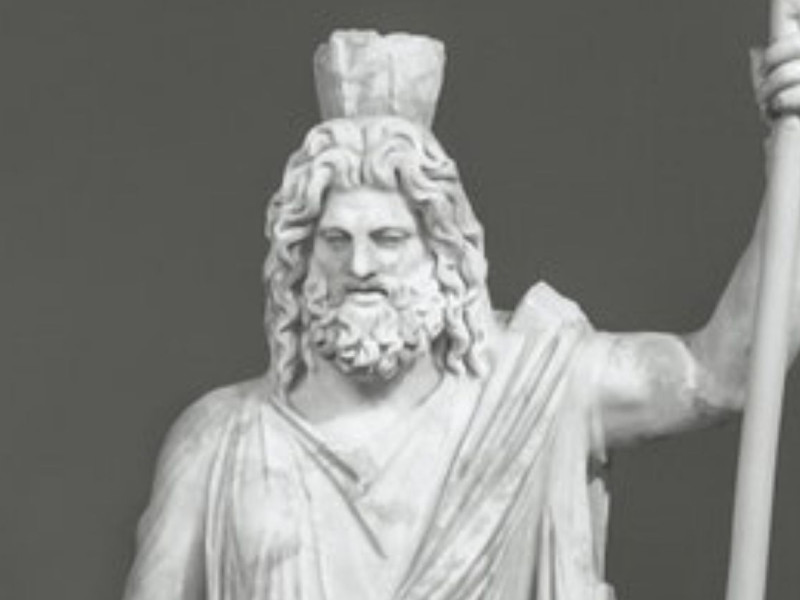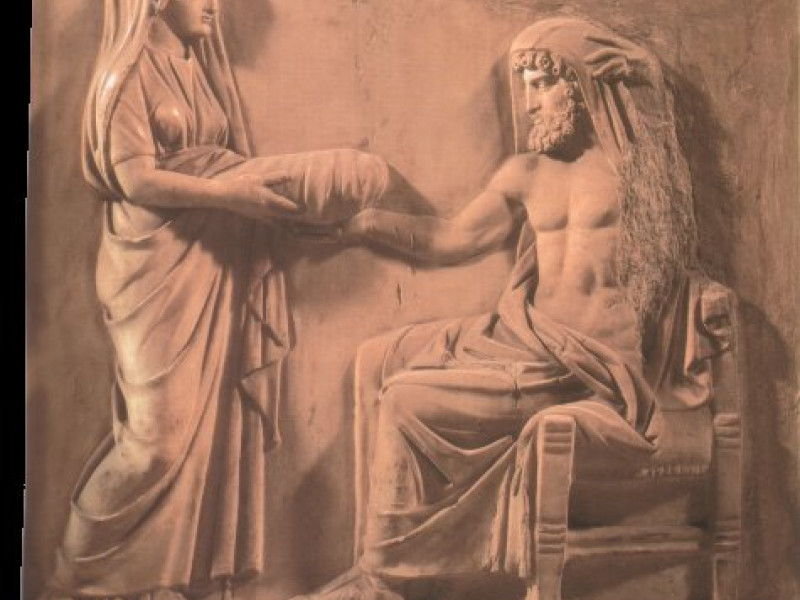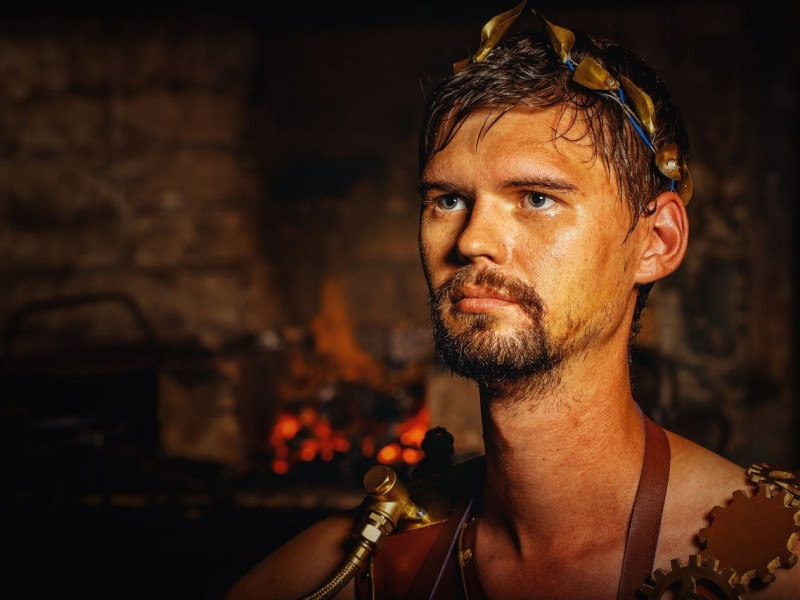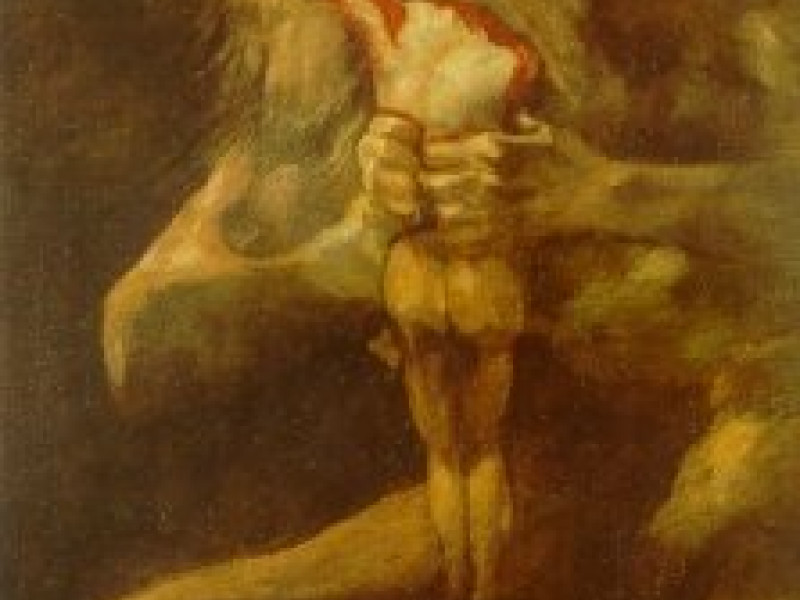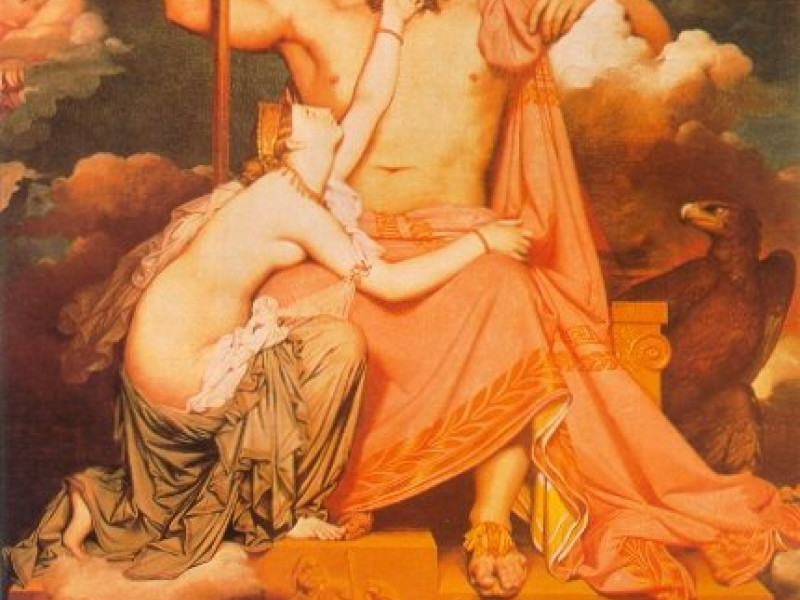Prometheus
Titan of forethought. Prometheus ("Forethought") was the son of the Titan Iapetus and either Iapetus' sister Themis, or possibly Clymene or Asia, both of which were Oceanids. Prometheus was the brother of Atlas, Menoetius and Epimetheus. He married Pronoea and was the father of Deucalion.
During the war between the Titans and Olympians, Prometheus sided with Zeus, knowing that the war would end with the younger gods winning the war. Prometheus unsuccessfully tried to persuade his father Iapetus and his brother Atlas to change sides. Iapetus was thrown into Tartarus, while Atlas would be forever burdened with the weight of heaven on his shoulders.
When Athena was about to be born, it was either he or Hephaestus that split open Zeus' head with an axe. Athena sprung out of Zeus' head, fully armed.
Prometheus was champion of the race of men. He was also the most shrewd and intelligent of all the gods. He stole fire and gave it to mortals, hiding it in a hollow fennel-stalk, which he took to men. He tricked Zeus into accepting the worst part of the sacrifice to the gods, while mortals kept the best part for themselves.
Prometheus probably had the power to see into the future. Prometheus managed to save his son and family during the Deluge.
See Creation, Theogony of Hesiod.
Prometheus was later punished by Zeus, who had him bound in Cascausia. A giant Caucasian Eagle fed on his liver each day.
When Prometheus met Io, who wandered the land in the form of a cow, he predicted her future, that she would return to her human form in Egypt; she would then give birth to her son from Zeus in Egypt. Prometheus also saw that one of Io's descendants would one day free him from his chains. Generations later, he was finally freed by Heracles, son of Zeus and descendant of Io, fulfilling his prediction. The Centaur named Cheiron gave up his immortality to Prometheus, so that the immortal Centaur might die, having suffered from torment from Heracles' arrow.
Either he or Themis predicted that any son of the sea-goddess Thetis would become greater than his father. Zeus, who was about to seduce Thetis, wanted to avoid the same fate of his father and grandfather, so he quickly married Thetis off to a mortal hero named Peleus.
By Jimmy Joe


